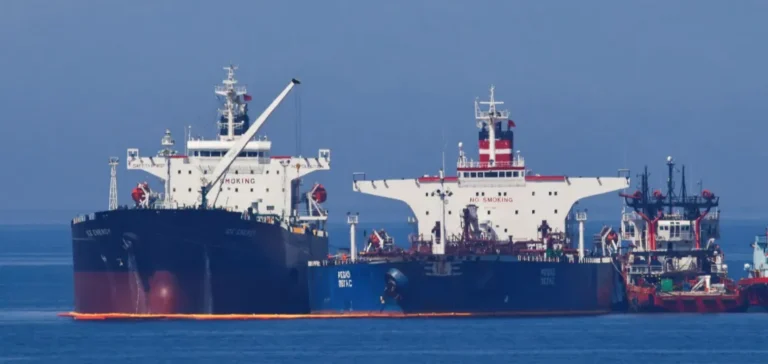The United States has increased its economic pressure on Iran by announcing a new wave of sanctions targeting an international network involved in the sale and transport of Iranian oil and gas. The Treasury Department identified over 50 entities, including individuals, companies and around 20 vessels, accused of financially supporting the Iranian regime through these exports.
A complex network of transport and refining
The US Treasury stated that the sanctions specifically target a “phantom fleet” of vessels operating under flags of convenience, including those of the Comoros, Gambia, Panama and Palau. These ships are accused of concealing the origin of crude oil shipments destined for Asian markets. The US administration estimates that these energy flows generate several hundred million dollars for the Iranian government.
Also among the new targets is an oil terminal located in China and several independent refineries known as “teapots”, active in purchasing discounted crude oil. These facilities, often less regulated than major national companies, play a central role in circumventing existing international sanctions.
Involvement of the United Arab Emirates in the network
The Treasury statement also mentioned the participation of companies based in the United Arab Emirates, accused of facilitating financial and logistical transactions linked to Iranian oil flows. The Treasury did not disclose the exact amounts involved but stated that these channels directly contribute to the funding of groups designated as terrorist organisations by US authorities.
This marks the fourth series of measures targeting Chinese independent refineries, as part of a strategy to restrict Iran’s access to global energy markets. The sanctions include freezing assets under US jurisdiction and banning US entities, as well as any foreign entity using the US dollar, from conducting business with the designated individuals or companies.
Consequences for energy trade in Asia
The growing number of sanctions against Chinese refineries may complicate crude oil supply for certain private sector players in Asia. Independent refineries represent a growing share of oil imports in the country and play an important role in regional market flexibility.
“We aim to dismantle critical components of Iran’s export machine,” said Treasury Secretary Scott Bessent, highlighting the objective of cutting off revenue streams fuelling networks deemed hostile to US interests.






















